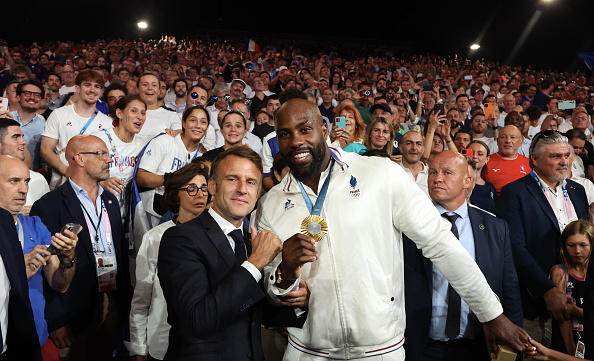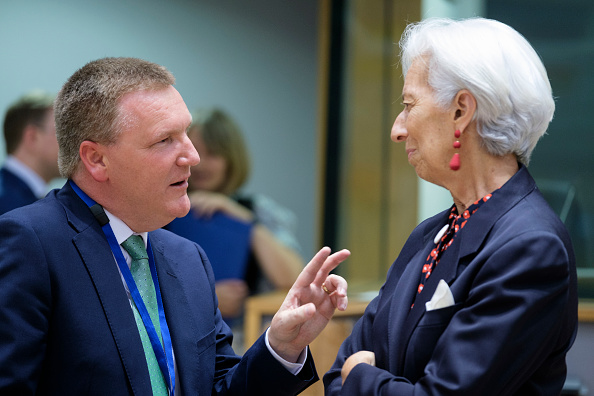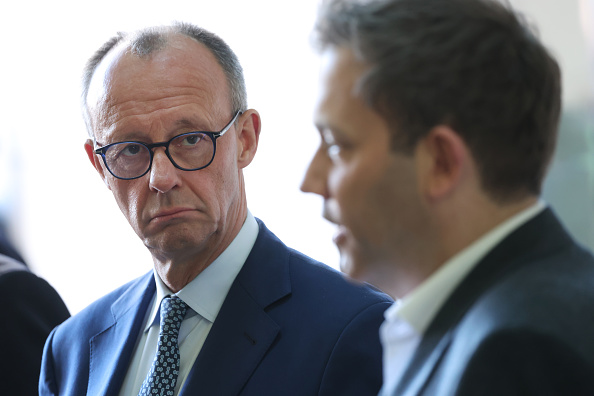“Pfizergate” has ended with something of a whimper.
The European General Court reprimanded Ursula von der Leyen for failing to disclose her text messages with Pfizer CEO Albert Bourla, ones the European Commission claimed never existed in the first place.
But the problem with “Pfizergate” from the start was how the controversy, far from promoting transparency, actually created more obscurity by hiding the role of the other beneficiary of the €35 billion Covid-19 vaccine contracts.
That was Pfizer’s German partner BioNTech, which, maybe unsurprisingly, has far closer ties to the European Commission’s German president than the American company.
Not only are BioNTech and Pfizer jointly contractors under the November 2020 Advanced Purchase Agreement (APA) with the Commission, but BioNTech – not Pfizer – is in fact the product’s legal manufacturer, as well as its marketing authorisation holder in the European Union, as in virtually all other markets.
Under the terms of their own collaboration agreement from April 2020, Pfizer is itself merely a BioNTech contractor performing manufacturing and other services on the Mainz-based company’s behalf. This subordinate role is clearly indicated on the product’s EU packaging, which states Pfizer manufactures “for” BioNTech – or simply lists BioNTech as the manufacturer.
But lest anyone doubt that BioNTech is the product’s legal manufacturer, if they happen themselves to have received a dose or two or more of the product, as hundreds of millions of Europeans have, they need only look at the vaccination certificate they received at the time and which will undoubtedly look something like the French sample below.

Furthermore, BioNTech also earned far more on sales of what is, after all, its product than Pfizer has.
Per the terms of their collaboration agreement, the two companies are supposed to split profits earned in Pfizer sales markets 50-50. These markets comprise most of the world. However, BioNTech also has its own reserved sales markets, Germany and Turkey, and has received substantial milestone payments from its American partner.
This, and the fact BioNTech markets the product with an entirely different partner on Chinese markets, helps explain how Pfizer earned roughly $20 billion in profits on Covid-19 vaccine sales in 2021 and 2022, but BioNTech earned over $30 billion–50 per cent more.
So, why has all the focus been on Pfizer, in the discussion of alleged or suspected improprieties in the EU procurement of the BioNTech-Pfizer vaccine, and virtually none on the consortium’s German – and leading – member? This is especially surprising given the president of the European Commission that procured up to 2.4 billion doses of the drug is, after all, herself German. And there undoubtedly is the rub.
For BioNTech is not just a German firm. It is a German firm that has been heavily supported by the German government its entire relatively brief history. This support included a whopping €375 million grant from the German government in support of its Covid-19 vaccine candidate. Contrary to popular belief, the BioNTech-Pfizer vaccine project received no funding under the American government’s “Operation Warp Speed”.
BioNTech was supported, however, by four successive German governments of which, as it turns out, Ursula von der Leyen was a member. Indeed, the German government has not only supported BioNTech from the outset. It also sponsored the very founding of the company: namely, as part of a “Go-Bio” programme whose very purpose was to foster start-ups, in the interest of turning Germany into a global leader in biotechnologies. “Go-Bio” was also expressly intended to help the companies attract private capital.
BioNTech CEO Ugur Sahin and his team of University of Mainz researchers received a first “Go-Bio” grant for €1.2 million in 2007 under the first government of former German Chancellor Angela Merkel. Ursula von der Leyen was the Minister of Family Affairs in that government. BioNTech was founded one year later.
The newly-founded company then received a second “Go-Bio” grant for nearly €3 million in 2010 under Angela Merkel’s second government. (For both grants and other funding, see here.) Ursula von der Leyen, had in the meanwhile, become Minister of Labour. She would go on to become Germany’s defence minister in the third Merkel government in 2013. She held this post until July 2019, when she resigned from the fourth and last Merkel government to be a candidate for the Commission presidency.
In the meantime, BioNTech continued to benefit from German public support as a leading member of the so-called “Ci3” research cluster, created with a €40 million grant from the Ministry of Education and Research. “i3” stands for “Individualised Immune Intervention”. “Ci3” was co-chaired by Sahin’s wife and current BioNTech chief medical officer Özlem Türeci and the third company co-founder Christoph Huber.
Under Ursula von der Leyen’s leadership, the EU itself would also get involved in financing BioNTech, with the European Investment Bank (EIB) kicking in €100 million in debt financing in support of the company’s Covid-19 vaccine project in June 2020. The president of the EIB at the time was former German foreign office official Werner Hoyer. Oddly enough, the EIB had already provided BioNTech a first line of €50 million in debt financing in mid-December 2019, just before the first reports of Covid-19 in China.
Despite the billions of euros that BioNTech has earned on Covid-19 vaccine sales in the meanwhile, this public support continues. Germany recently contributed over €500 million to support the company’s expansion into Africa, and the EU pitched in as well.
The text-message saga created the impression, or perhaps illusion, the problem with the EU vaccine procurement process was the potential corruption of von der Leyen by outside forces: “Big Pharma” in the form of Pfizer.
This idea was reinforced by wildly bogus claims von der Leyen’s husband Heiko worked for a biotechnologies company owned by Pfizer. Identical posts to this effect have repeatedly gone viral on social media. But as is easily verifiable, the small, closely-held company in question, Orgenesis, is not “owned” by Pfizer. Pfizer appears not even to have any stake in it at all.
The problem with the EU procurement process was never corruption or any personal conflict of interest on the part of von der Leyen. Rather, it was a built-in institutional conflict of interest of which the Commission’s German president is, so to say, the embodiment. Namely, the EU’s most powerful member state, Germany, was the state sponsor of BioNTech.
Were it not for the obsessive focus on Pfizer, this would be obvious. Germany, incidentally, participated in the contract negotiations directly: as a member of the “Joint Negotiation Team” of seven member states that assisted the Commission.
After the US-based Brownstone Institute published a critical article raising some of these issues in late 2022, five members of the European Parliament publicly acknowledged BioNTech’s leading role and called for the company CEO to be brought before the Parliament’s since disbanded committee on the COVID-19 response – as can be seen below.
But this did not come to pass.

And, while there has been incessant chatter about Ursula von der Leyen’s possibly non-existent text messages with Albert Bourla, nothing has been heard of this substantially more vexing matter since.





